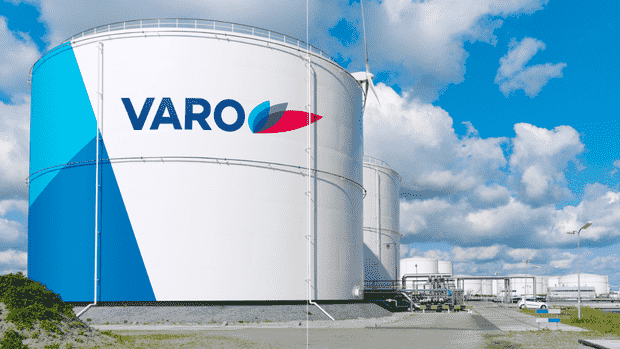Dusseldorf Lufthansa wants to buy sustainable kerosene from Varo Energy in the future. From 2026, the Swiss oil company wants to produce 260,000 tons of the so-called Sustainable Aviation Fuel (SAF) per year and supply the largest German airline, among others. This emerges from a declaration of intent that both companies made public on Thursday.
Varo Energy boss Dev Sanyal says: “Airlines like Lufthansa need large amounts of SAF. We believe that many partnerships for sustainable fuels will be agreed in the future.”
Airlines are under increasing pressure to reduce their emissions as climate regulations become ever more stringent. From 2026, for example, airlines will have to purchase expensive allowances for all their CO2 emissions on intra-European flights.
This creates a new market for oil companies like Varo Energy, which are already looking for new business models that are not based on fossil raw materials. After all, regulations such as the so-called EU taxonomy in Europe ensure that it is becoming increasingly difficult to get money from banks and investors for climate-damaging transactions.
Varo Energy’s business has so far been largely based on refinery products. According to the company, every tenth liter of oil products sold in Germany comes from Varo. Now the focus of the company is about to change. Sanyal says: “Two thirds of our investments in the next five years will flow into the development of sustainable energies.”
“Tank or plate” – debate about biofuels
By 2040, Varo Energy wants to be CO2-neutral. To achieve this goal, the company relies on hydrogen, software for electric cars, reforestation – and on biomethane and biofuels. “We want to help our customers to decarbonize,” says Sanyal.
So Varo is in good company. In recent months, Lufthansa has already signed various declarations of intent with Varo’s competitors to purchase biokerosene. The Austrian company OMV, for example, intends to deliver 800,000 tons of SAF per year to Lufthansa starting this year. And Shell wants to make 1.8 million tons available from 2024.
But the oil companies’ business with sustainable fuels is also controversial. After all, so-called “first-generation biofuels” partly consist of components from grain or corn – and are therefore in competition with food production.
The “tank or plate” debate is reviving these days, because Federal Environment Minister Steffi Lemke declared last week that agrofuel from food and feed crops should no longer be subsidized from 2030. Lemke sent a corresponding regulation proposal to the departmental vote.
>> Also read: Plant-Based Fuels – The Straw and the Controversy
The dispute over the subject is having an effect on Varo Energy’s future plans: The biokerosene that Varo wants to produce for Lufthansa is to be made exclusively from non-edible raw materials, as Sanyal emphasizes.
Germany as an attractive production location
That wasn’t always the case: When asked, Sanyal admits that Varo Energy also uses biofuel mixtures in its existing production that consist of up to 40 percent first-generation biofuel – and are therefore also made from edible plants.
The sustainable transformation and, above all, the replacement from the fossil business is not going as quickly as some energy companies are currently claiming. At Varo, a look at the planned yields for the coming years also shows this.
Sanyal says: “In the next five years we want to triple our company’s earnings, and 50 percent of the earnings will come from our five new, strategic growth pillars.” The sustainable businesses should therefore contribute half of the earnings – while Varo two-thirds of its investments puts in.
>> Also read: Sustainable kerosene is supposed to make aviation greener – but it has its pitfalls
Sanyal says: “We do not use the one third that flows into the conventional energy business for new plants. These investments are simply necessary to maintain security in the existing business.”
However, the plans for the future business with biokerosene for Lufthansa are still very vague. The two companies have already agreed on the announced delivery quantities. Whether these will also be produced in Germany is apparently not yet certain.
Sanyal, whose company holds a majority stake in the Bayernoil refinery in Neustadt, Bavaria, says only this much: “Germany is an attractive production location for us.”
More: The EU itself no longer wants to import diesel and heavy fuel oil from Russia
